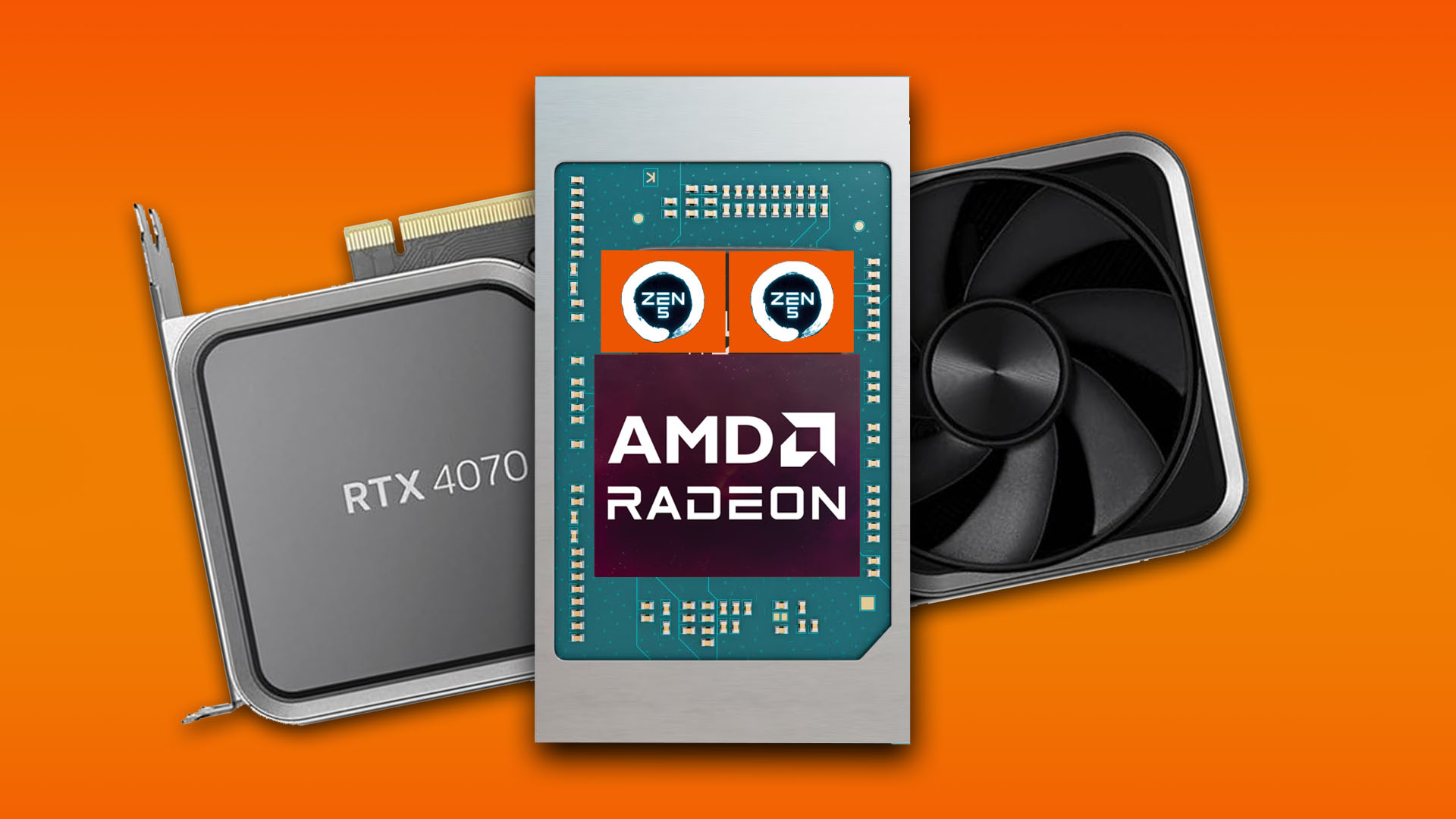Hype has been swirling for a while around the potential power of AMD’s upcoming Strix Halo gaming laptop CPU. However, this new AMD Strix Halo die size leak really hammers home the potential power of this new chip.
The single chip contains both a CPU and GPU – known as an APU – and houses a GPU die that’s larger than the AD104 chip used to make the RTX 4070, hinting at the grandeur of its graphics grunt. This new AMD chip should in theory unlock a whole new category of best gaming laptop contenders, potentially strikinh a balance of gaming power and compact, portable design.
CPUs with integrated graphics are nothing new, of course, and in fact most laptop and desktop processors have contained a small portion of GPU. However, AMD has long been known for providing some of the more powerful integrated GPUs on its CPUs/APUs, and Strix Halo appears to be taking that idea to another level.
The new leak, which comes from X (formerly Twitter) leaker @7931doomer111, purportedly shows the layout and size of the new chip, including the specific die sizes of the CPU and GPU portions of the design. The whole chip (the silicon dies and the substrate on which they’re mounted) measures 37.5 x 45mm, which is around the same size (footprint) as a desktop Intel LGA 1700 processor – that’s large for a laptop CPU.
Meanwhile, contained on the substrate are three separate silicon chips that consist of two CPU dies and one GPU die. Immediately, this is in contrast to the company’s latest laptop CPUs that use the Strix Point architecture and are available as the AMD Ryzen AI 300 series of processors. Those chips use a monolithic design, where the CPU and GPU are all contained in a single silicon chip.
The two CPU dies are known as CCDs (core chiplet dies) and each contains eight of the company’s Zen 5 CPU cores. That means Strix Halo CPUs will be available in up to 16-core configurations, making them mightily powerful for laptop CPUs. These CCDs apparently have a relatively modest size of 7.327 x 9.055mm or 66.3mm2 but the GPU is something else entirely.
The Strix Halo GPU purportedly measures a massive 16.02 x 19.18mm or 307mm2, which is larger than the 294mm2 of the Nvidia GeForce RTX 4070‘s AD104 GPU. That’s not to say this GPU will be more powerful than a desktop RTX 4070, as the power limitations of a laptop GPU are different and AMD and Nvidia’s architectures differ considerably, but we’d hope for them to be in the same ballpark.
Speaking of power, there is also leaked thermal design data for these chips, with three configurations listed at 55W, 85W, and 120W. As a comparison, the Alienware M16 R2 laptop we just reviewed contains a laptop RTX 4070 and Intel Core Ultra 7 155H CPU (with a 6+8 core configuration), and it’s rated to a 175W thermal design power (TDP).
As such, AMD’s thermal design ratings hint at this chip either being more efficient than Intel’s design, or not as powerful. There may also be higher-power options that simply haven’t had their details leaked yet .
Also notable about this leaked TDP data is the fact that the ratings above are for the APU onlym whereas the full system TDP including memory rises as high as 133W, with the leak showing that 32GB of memory adds between 5W and 9Wm while 128GB adds between 10W and 13W. The leaked information also clearly states that these numbers are early test numbers, not final product numbers, so they shouldn’t be taken as exact. That of course goes for the entirety of this leak too, as none of this has been confirmed by AMD.
If you were wondering whether the power of Strix Halo could be used for a Steam Deck type of device, the above TDP ratings suggest it would be a stretch. The Steam Deck TDP is just 15W, while the Asus ROG Ally X and similar devices only rise to 30W, so with Strix Halo listed here with a minimum 55W TDP, it seems unlikely it would find a place in such small handhelds.
The final key aspect of this latest leak is a table that shows a TDP comparison between a test system using a Strix Halo chip, and one using an Intel CPU with a GPU labeled NV GN21-X6, which refers to an RTX 4070. The table doesn’t really tell us too much directly, other than AMD – or whoever this test data comes from – saw fit to compare Strix Halo to a setup of this power level. Notably, though, the RTX 4070 is only set to an 80W TDP, which is below its normal 115W maximum TDP.
For more on AMD’s latest laptop wonders, check out all the details on its new Zen 5-powered Strix Point laptops that have just launched.



